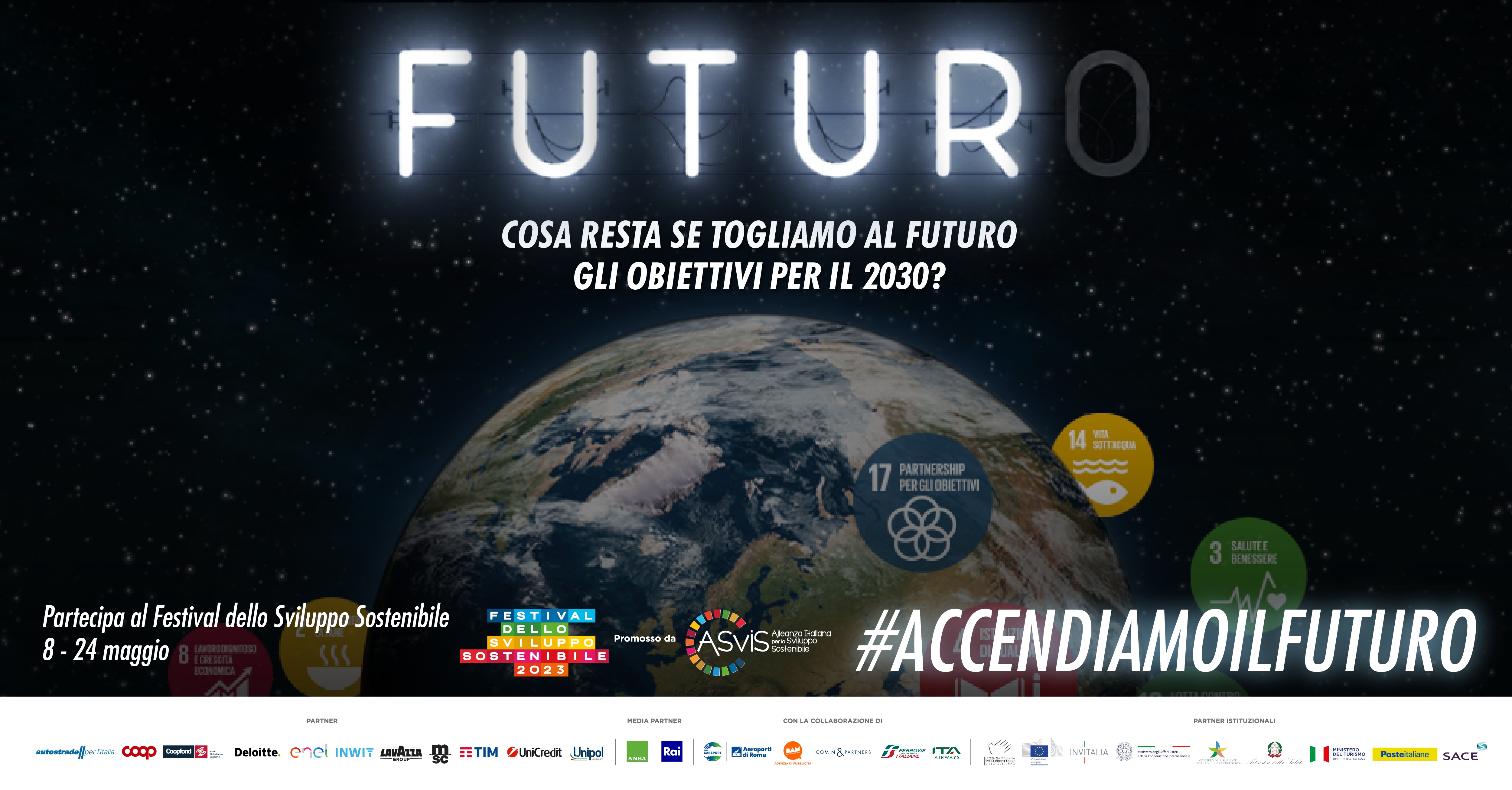Event LINK 2007 and LVIA Sustainable Food Systems – ASVIS FESTIVAL 2023

22/05/2023
As part of the festival of sustainable development, the Link 2007 – cooperation network and the international association of lay volunteers – Lvia, have organised a workshop format event on sustainable food systems in Cuneo tomorrow, 23 May. “The number of people who do not eat enough is close to 800 million,” writes Riccardo Moro, secretary general of Lvia. Yet, “food waste is enormous. FAO estimates speak of 14% lost between production and distribution and Unep estimates of 17% wasted between retail and consumers”.
The Sustainable Development Festival is the largest Italian initiative to raise awareness and mobilise citizens, the younger generations, businesses, associations and institutions on the issues of economic, social and environmental sustainability. As part of the festival, Link 2007 – cooperazione in rete and the association Volontari Laici Internazionale – Lvia, have organised a workshop format event on sustainable food systems to be held in Cuneo on 23 May from 5 to 7 p.m. in presence and online.
The number of people who do not eat enough is close to 800 million, approaching 10% of the world’s population. That’s one in ten people. Both the total number and their percentage had laboriously declined between 2000 and 2015, but since 2017 these figures have risen again. Food prices continue to be characterised by pronounced volatility, with real market stimuli (forecasts of scarce rather than abundant production) being amplified and distorted by a financial market that is still unregulated after the 2008 crisis. Food waste is enormous. FAO (Food and Agriculture Organisation of the United Nations) estimates speak of 14% wasted between production and distribution and UNEP (United Nations Environment Programme) estimates of 17% wasted between retail and consumers. All this shows how a market that should be the object of attention and ‘custody’, because it is fundamental to human life, has obvious elements of weakness, with global production chains proving ineffective in the face of the objective of feeding everyone in a sustainable manner.
Several elements affect this picture. On the one hand, the race for production, which in the past has favoured unsustainable technologies, monocultures and processes that have impoverished soils and weakened markets. On the other, market conditions at the local level, but also at the international level, which are heavily influenced by players with dominant positions. Not uncommon then, in the South, are cases of insufficient distribution systems at the local level, with isolated areas poorly served by transport and ‘physical’ markets that cannot be reached. Imbalances have also been generated by policies of the richest countries, which protect producers in rich regions at the expense, in fact, of those in other areas of the planet.
Civil society has long been at the forefront of calling for policies to promote sustainable food systems that take into account the changing contexts caused by climate change and that are able to both guarantee universal access to food and adequate incomes for farmers. The perspective being looked at is that of agroecology, which combines producer protagonism with environmental sustainability, combining traditional knowledge and technological innovation. Farmer networks and non-governmental organisations have been working on this issue for years with proposals and operational interventions. All this falls within the perspective of food sovereignty, which is not the rejection of trade, but the search for conditions whereby communities can choose what to produce, what to consume and what to exchange, favouring sustainable solutions and not having to submit to conditions imposed by those in dominant positions.
In order to move in this direction, a commitment on the part of the protagonists, producers, distributors and consumers, is important, but an initiative in terms of public policies, both national and international, is necessary. Recognition and incentives must be given to those who promote sustainable food systems and rules must be defined for all. The issue of distribution must be addressed, including in this the issue of structures to allow market access to those who are excluded, physically or economically, and that of dominant positions at national and global level. Important is the issue of regulating financial markets and the derivatives market in particular, which today actually determine food prices more than real market conditions do.
For there to be a path of this kind, spaces for participation and consultation are needed that at national and international level enhance the prospect of democratic food systems with an important role for intergovernmental bodies and avoid the instrumentalisation of these spaces by those who already have dominant market positions. The role of the United Nations, and spheres such as that of the FAO (World Food Security Committee) become fundamental. This is also why the drift of nationalisms that de-legitimise multilateral processes and an increasing role offered to the strongest actors in the private sector are elements of concern.
Riccardo Moro, Lvia Secretary General
The article was published in VITA NON PROFIT
Watch the event on the LINK 2007 YouTube channel
